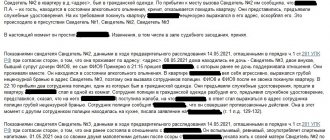Restrictions on freedom of speech on the Internet
In posts, comments to articles, and social networks, there is a stormy stream of insults from people who, by their behavior, place themselves outside the generally accepted ethics of human society. Obscene, vulgar, aggressive, cruel attacks and expressions that insult the honor and dignity of other participants are allowed.
In this case, a person who considers himself offended has the right to seek protection of his rights in court. Judicial practice develops in such a way that the defendant’s arguments about “freedom of thought and speech” are not taken into account. Freedom does not imply an unlimited right to publish one’s opinion in an offensive, cynical form with obvious disrespect for the interlocutor, which, moreover, becomes the property of a wide circle of people.
Punishment for insulting a person: Article 5.61 of the Code of Administrative Offenses
The law makes it a punishable offense to disseminate information that meets the following criteria.
- Indecent form. Despite the subjectivity of this concept, in most cases it is understood as a cynical form of humiliating treatment of a person, contrary to the established rules of behavior in society, the requirements of universal morality.
- The information offends human dignity and public morality.
- The intentionality of an act directed against a specific person or society as a whole. The offender is aware of the nature of his action and wants to commit it.
For such unlawful behavior, the culprit may receive a fine of 3 to 5 thousand rubles if he is an individual, and up to 30 thousand rubles if he is an official. At the same time, insulting a person in a public publication, on the Internet, including on social networks, is considered a more serious offense, for which paragraph 2 of Article 5.61 of the Code of Administrative Offenses provides for tougher punishment: the fine is up to 10 thousand rubles. for an individual.
It is obvious that an insult on the Internet, with unlimited user access, can be replicated and receive additional comments. Consequently, the person repeatedly experiences distress when repeating and discussing offensive language. If the court recognizes the existence of an insult, the plaintiff has the right to demand compensation for moral damage from the offender.
Step-by-step description of the procedure
- If you find an offensive statement or recording (audio, photo or video), you must take a screenshot of the page.
- Next, you need to send a request to the Russian Research Institute for the Development of Public Networks (RosNIIROS), where you can find out the address of the owner of the site that published the insult.
- If you cannot obtain an address, then you need to contact one of the structures listed above. Employees of these government agencies will identify the offender themselves during the investigation. To file a complaint, you must write a statement. The document is drawn up in any form, but must contain the following information:
- Applicant’s full name, residential address and passport details;
- date and address of the website on which the insult was committed;
- the essence and content of the offensive statement (photo, video or audio recording);
- all known information about the offender (if possible);
- the requirement to punish the offender and recover compensation for moral damage caused;
- list of attached evidence;
- the applicant's signature and the date the document was drawn up.
Methods of combating online abuse will be discussed in the video below.
What is considered an insult and how to define it
It is obvious that each person’s opinion of himself is purely individual. It is quite possible that a person is considered insulted, even if criticism is made in a “decent” manner. The reason may be increased self-esteem, egoism, vanity, and exaggeration of one’s own merits. A person demands special respect for himself without any reason, behaves arrogantly, is intolerant of other people's opinions and any, even fair, criticism addressed to him. In fact, “insult” is a subjective concept; the depth of his humiliation is assessed by the victim himself.
From a legal point of view, it does not matter whether the information disseminated corresponds to the actual state of affairs or not. To qualify an insult, the very fact of its existence and the form of humiliation are important.
If, for example, there was a statement using profanity (swearing), this is usually considered an insult. They don’t study it at school, but due to the principle of the well-known meaning of obscene expressions, they are condemned in society. As for “rude”, “cynical” statements, not all of them fall under the definition of insult. The decision is made by the court, and the main basis for establishing the fact of personal insult on social networks: the statement contains a negative assessment of the victim, his human qualities in a form that sharply contradicts the accepted rules of communication between people.
Often the court does not take responsibility for determining the nature of the disputed text and commissions a forensic linguistic examination. This can also be done based on a request from either party. Experts evaluate the text from linguistic, ethical and legal points of view. As a rule, the conclusion about the existence of a fact of insult follows when it is established: the intentionality of the publication, a crude form that degrades a person’s dignity, a clear attack on his values.
Personal insult on social networks: what to do?
What can and should be done to punish a person who insults others when communicating on the Internet? At a minimum, the following actions must be taken:
- provide evidence for the court by contacting a notary;
- submit an application demanding to punish the perpetrator of insult to personality;
- demand compensation for moral damages for the suffering caused.
Notarial provision of evidence
The victim must contact the notary with an application to provide evidence for the court. Having accepted the application, the notary immediately performs the following actions:
- opens the page at the address specified by the applicant, takes a picture of it/takes screenshots indicating the time of validity;
- draws up a protocol for examining the web page, describes its contents;
- certifies the protocol with his signature and seal.
The notarial protocol provides indisputable evidence in court and does not require additional confirmation. The document is correctly drawn up from a procedural point of view and is always accepted by the court.
Procedure for going to court
Administrative cases related to personal insult, including on social networks, are initiated by the prosecutor. Thus, the application must be submitted to the prosecutor's office. There is no need to write any preliminary complaints against the offender. After checking and confirming the stated facts, the prosecutor issues a decision to initiate an administrative case and transfers the materials to the court.
The applicant needs to remember: the statute of limitations for bringing a person to administrative responsibility for this type of offense is only 3 months.
In some cases, the offended person knows his offender if he opens a page on a social network under his own name. But sometimes it is not possible to reliably identify the person who posted the information. As a rule, courts establish the fact of dissemination of information by a specific person based on the totality of the following evidence: mobile phone number, network address, indirect evidence of the ownership of an Internet page by a certain person. Sometimes this requires technical expertise, requests to the provider and owners of the Internet resource.
It is important to understand the following: social networks are not a mass media, but rather a means of free mass communication. Therefore, the statement to the prosecutor should be written in relation to the specific person who committed the insult, and not the site and its owners.
We emphasize: in court it is necessary to prove that indecent actions, in this case written statements, were carried out in relation to a specific person, and not in relation to a situation or event. For example, in one of the lawsuits, the judge did not find any signs of insult in the fact that one of the users sent another using the expression “fuck you...”. In this case, the personal qualities of the applicant were not affected, and the essence of the message was not aimed at humiliating the individual. At the same time, the expression “farmer” in relation to a doctor was considered an insult, as it characterizes his professional qualities in a negative light.
Claim for compensation for moral damage
As part of the court case, the applicant, a user of a social network, has the right to demand not only punishment of the offender for insult under Article 5.61 of the Code of Administrative Offences, but also to file a claim for compensation for moral damage. The basis for this will be the recognition by the magistrate court of the fact of an offensive act committed by the defendant.
The statement of claim must correctly motivate the demand for monetary compensation and the amount of compensation, and explain what exactly the applicant’s moral suffering consisted of. This may be a disorder of the nervous system due to the fact that the offended person was forced to explain the situation to his spouse, children, friends, or seek psychological or medical help.
Bringing the culprit to justice
The procedure for bringing the perpetrator (whether an individual or another party) to administrative responsibility for insulting a person directly or indirectly inflicted via the Internet can be divided into the following stages.
Preparation of evidence
In order to prove the fact of insult to someone, you must first create an appropriate screenshot (screenshot) that allows you to capture all the key signs of the offense.
The screenshot should include:
- direct insult – be it text from personal or public correspondence, a provocative image or other defamatory materials;
- direct or indirect signs that the insult is directed at the victim.
In case the offending information is subsequently removed for any reason, it is also advisable to retain a link to the page containing the offending publication.
If the insult is not limited to text (contained in a video, etc.), it is advisable to save the material containing it to the computer’s hard drive, to the phone’s memory, or in another accessible way.
Drawing up an application
After all materials serving as evidence of the unlawful actions of the perpetrator have been prepared, the victim must write a corresponding statement to the police and/or to the court. With the exception of the addressee, the text of the application will be similar for both options.
The application must reflect the following:
- Addressee: name and address of the government agency.
- Applicant: Full name, address and contact details of the victim (or another person representing his interests).
- Details of what happened: identification of the parties to the conflict, description of the circumstances under which the insult was inflicted, links to previously prepared materials.
- The requirement to bring the perpetrator to justice in accordance with the norms of Russian legislation.
- List of attachments: a copy of the applicant’s identity document, evidence of the insult on paper and/or electronic media.
- Applicant's signature, date of filing.
In the event that the actual details of the offender are unknown and there is no way to determine them, it is enough for the victim to indicate in the application his nickname (network pseudonym) and/or other known information.
Employees of the investigative authorities are obliged to independently carry out all necessary investigative measures, which in this case will include establishing the real identity of the offender.
Punishment of teenagers for insulting a person on the Internet
A large number of Internet users and, especially, social networks are minors under 18 years of age. According to the law, a person who has reached the age of 16 can be held administratively liable. This does not mean that teenagers can insult other participants in networks, forums, and chats with impunity. Offenses committed by persons aged 14 to 16 are reviewed by juvenile affairs commissions. Of course, in this case, the culprit will face a warning and other educational measures; he cannot be punished under an administrative article. However, you can file a civil claim in court for compensation for moral damages. The legal representatives of the poorly brought up teenager - his parents or guardians - will pay for the insult.
Moreover, according to Article 1074 of the Civil Code of the Russian Federation, adolescents aged 14 to 18 years bear independent responsibility for harm caused to other citizens. In case of monetary compensation and there is no income to pay it, the missing amount is paid by the parents.








